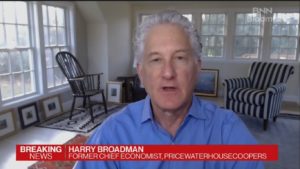
In a world where global trade is in crisis, the agreement on the RCEP has been greeted as the world’s largest free-trade zone. International trade negotiator Harry Broadman disagrees, he writes in Forbes. This claim is over-stretching the truth,” Broadman writes.
Harry Broadman:
RCEP has been billed as creating the “newest and largest free trade area” in history. This claim is over-stretching the truth. In two dimensions.
In terms of its scale, it is true that in terms of population (2.2 billion people or 30% of the globe’s inhabitants) and economic output ($26.2 trillion or 30% of global GDP), it is very big. However, assessing a change in the stance of a trade policy regime governing the span of economic transactions is determined jurisdictionally. China is obviously the most populated country on earth; but how its firms, consumers and workers vie in the international marketplace with those in other countries is condition by the set of rules determined by Beijing.
In this regard, it is probably more meaningful to measure the scale of RCEP (or of any other trade agreement for that matter) in terms of how many individual countries will, as a result of an agreement, operate under uniform rules. 15 jurisdictions are clearly many countries. By way of comparison, however, the World Trade Organization (WTO) has 164 member states (of which all RCEP countries are members).
Harry Broadman is a speaker at the China Speakers Bureau. Do you need him at your (online) meeting or conference? Do get in touch or fill in our speakers’ request form.
Are you looking for more strategic experts on the China Speakers Bureau? Do check out this list.